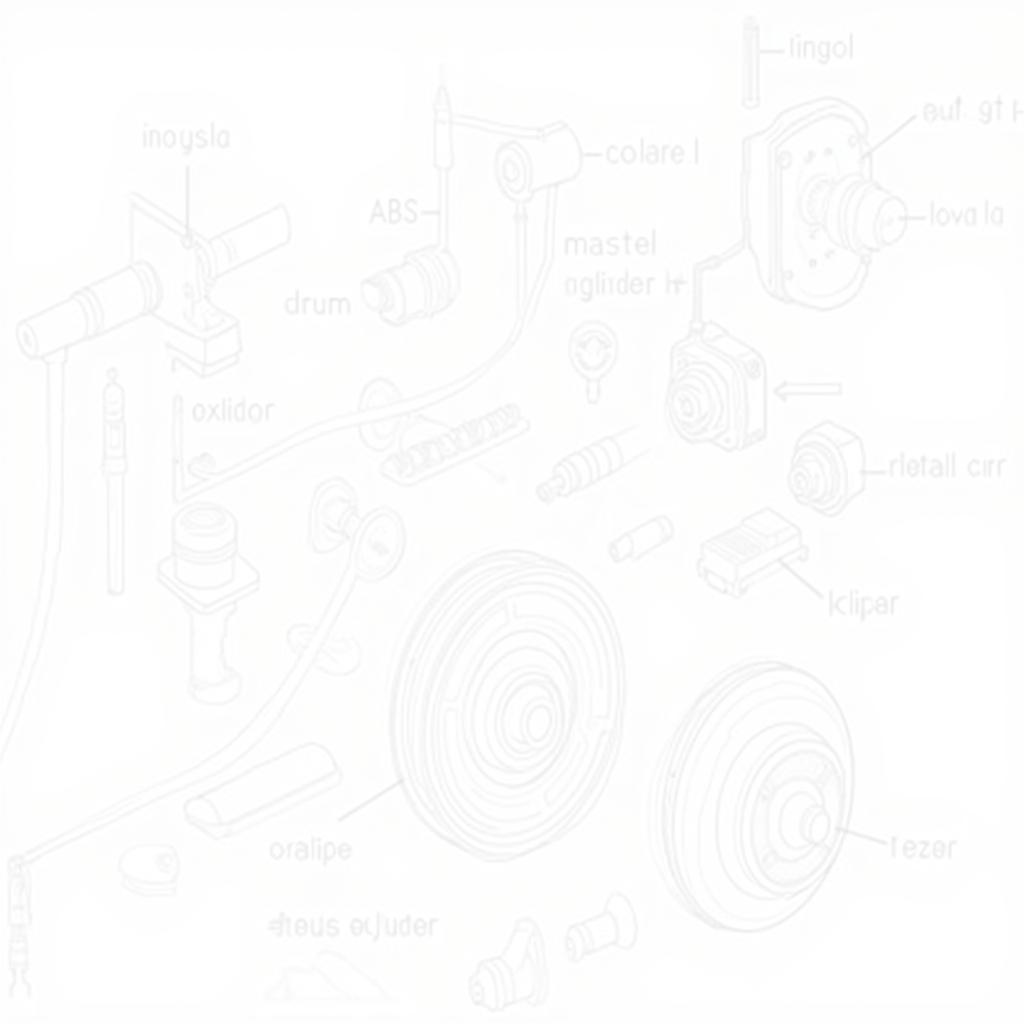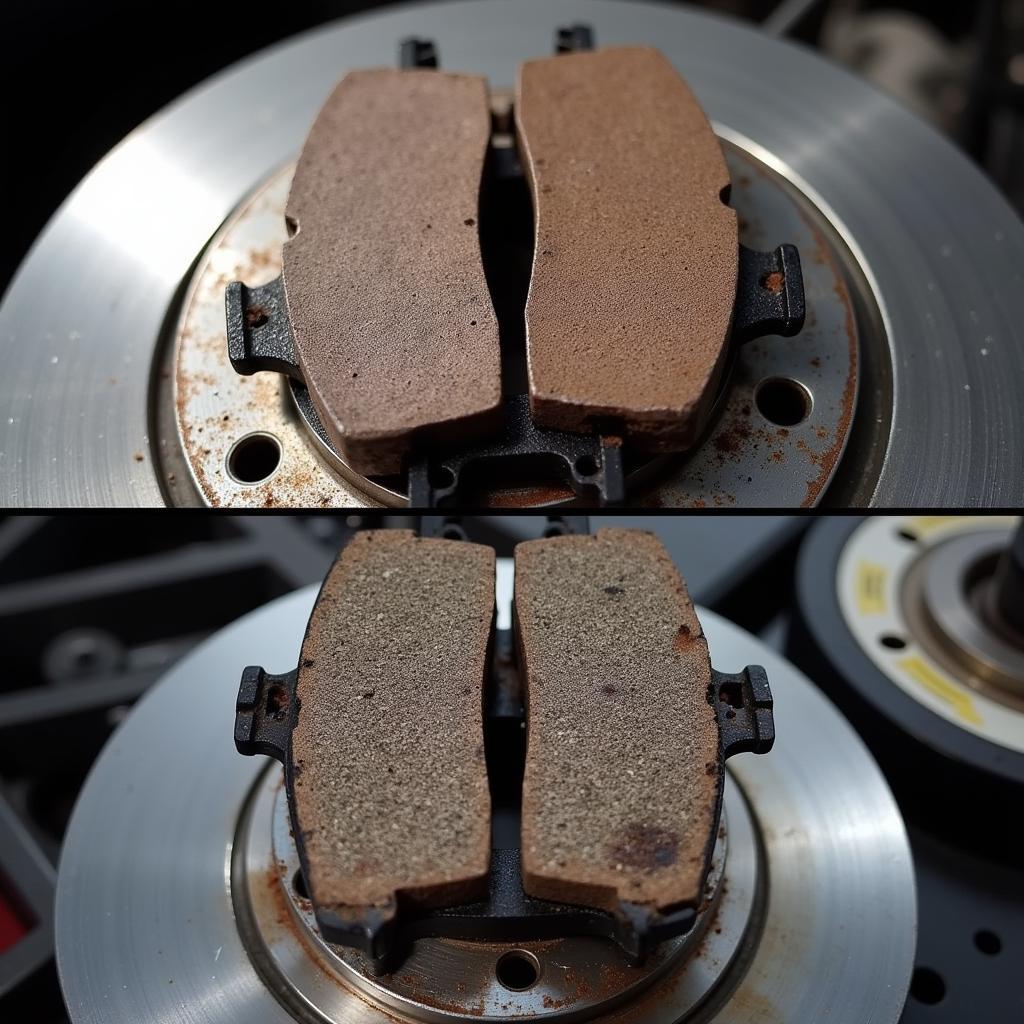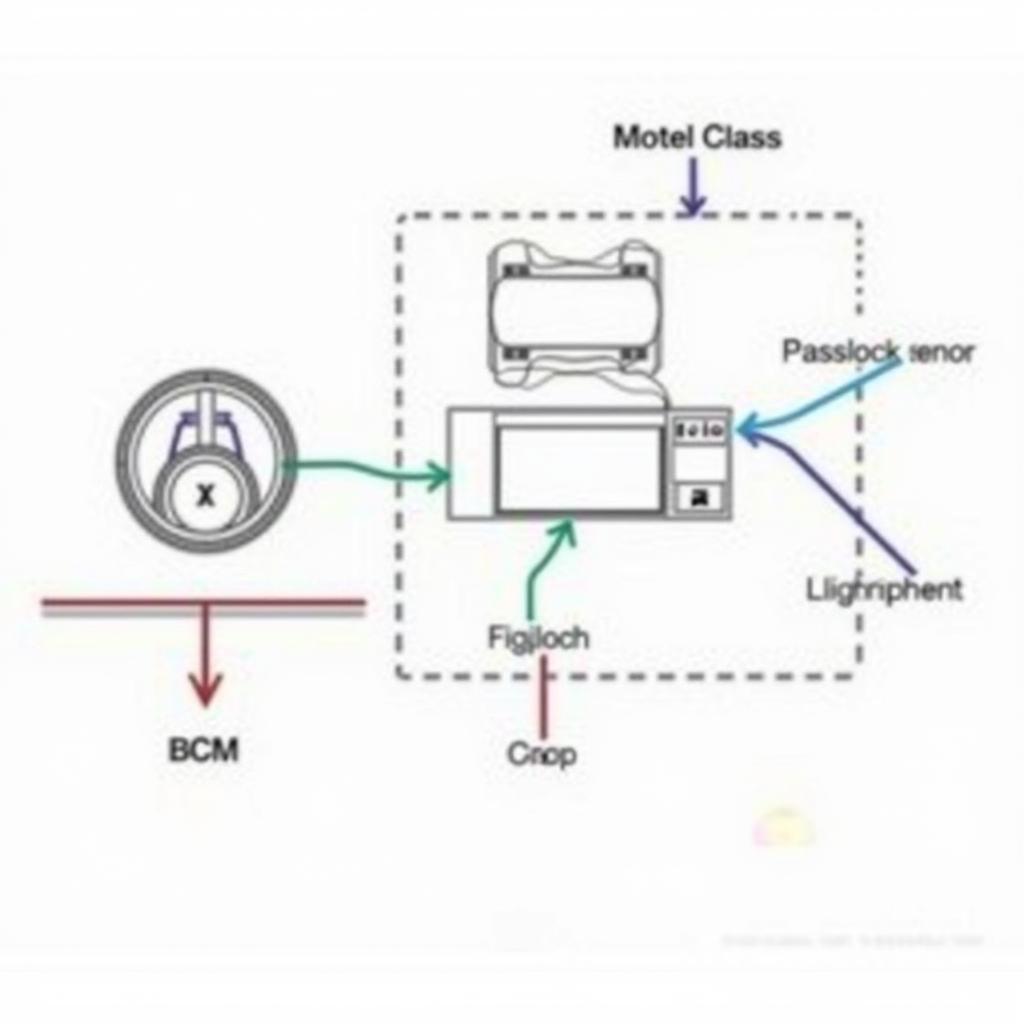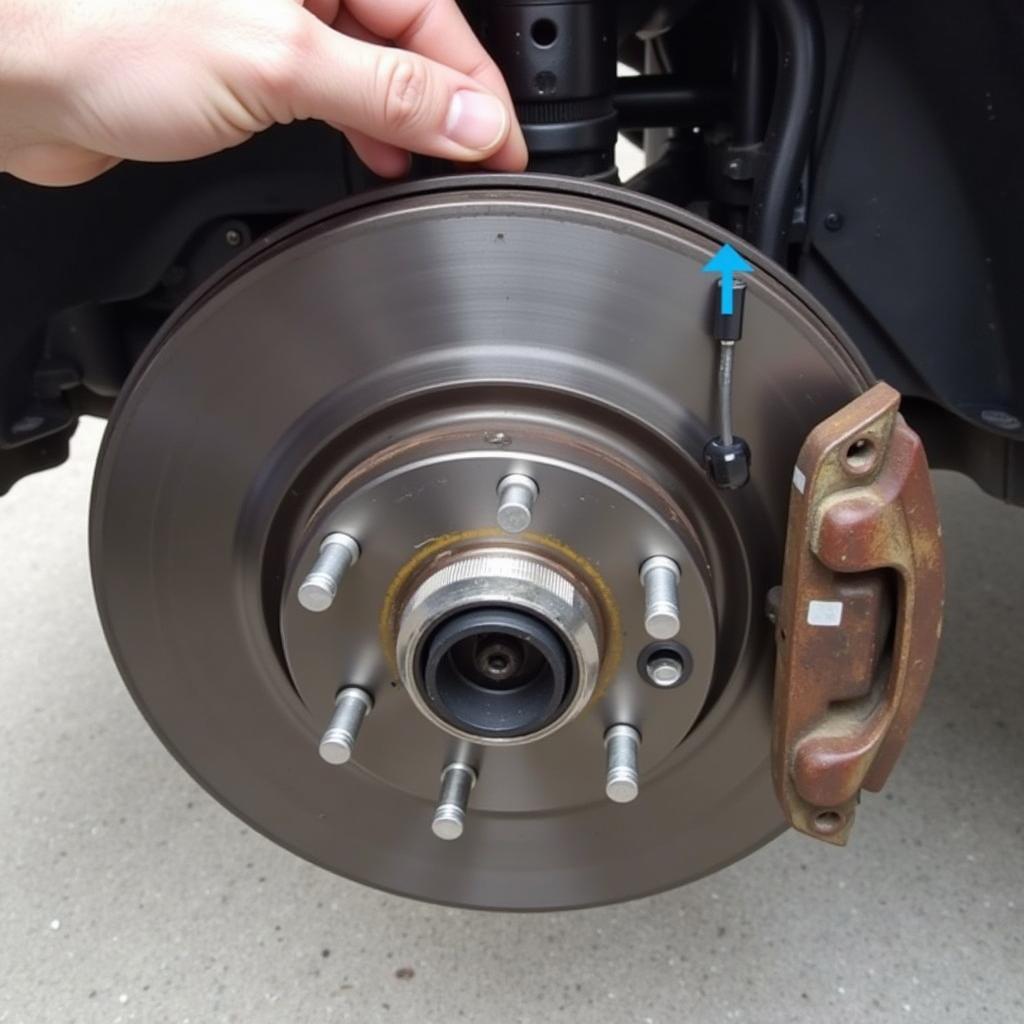A Nissan brake warning light can be unsettling. It signals a potential issue with your braking system, demanding immediate attention. Whether it’s a persistent light, an intermittent flicker, or accompanied by unusual sounds, understanding the meaning behind the warning is crucial for your safety and the longevity of your vehicle. This guide will help you understand the various causes of a Nissan brake warning light and provide practical advice for addressing the problem. For example, check this article about the 2009 Nissan Altima brake warning light.
The brake warning light in your Nissan is connected to several components, including the brake fluid level sensor, the parking brake, and the anti-lock braking system (ABS). It’s designed to alert you to potential problems within these systems. Ignoring the warning light can lead to more serious and costly repairs down the line.
Common Causes of a Nissan Brake Warning Light
Several factors can trigger the brake warning light in your Nissan. Some of the most common causes include:
- Low Brake Fluid: This is the most frequent culprit. Low brake fluid can be due to leaks in the brake lines, worn brake pads, or a faulty master cylinder.
- Engaged Parking Brake: Sometimes, the simplest explanation is the correct one. Ensure your parking brake is fully released.
- ABS Issues: A problem with the ABS system, such as a faulty sensor or pump, can trigger the warning light.
- Worn Brake Pads: As brake pads wear down, the brake fluid level drops, activating the warning light. This could relate to issues such as a Nissan Altima 2008 brake light warning.
- Faulty Brake Light Switch: A malfunctioning brake light switch can also illuminate the warning light.
Diagnosing the Problem
Identifying the specific cause requires some investigation. Start by checking your parking brake. If it’s released, move on to checking the brake fluid level. If it’s low, top it off and monitor for leaks. If the fluid level drops quickly, you likely have a leak in the brake system.
If the brake fluid level is adequate, the problem could lie within the ABS system. A diagnostic scan tool can pinpoint the specific ABS fault code, helping you or a mechanic address the issue effectively. If you suspect a faulty brake light switch, testing it with a multimeter can confirm the diagnosis. Issues like a 1997 Nissan Altima dash brake light warning won’t go off may be related to this.
What to Do When Your Nissan Brake Warning Light Comes On
- Stop safely: Pull over to a safe location as soon as possible.
- Check your parking brake: Make sure it’s fully disengaged.
- Check your brake fluid level: If it’s low, carefully add the correct type of brake fluid.
- Inspect for leaks: Look for any signs of brake fluid leakage around the brake lines, calipers, and master cylinder.
- Avoid driving: If the warning light persists, avoid driving the vehicle and contact a qualified mechanic.
Remote Diagnostics and Software Solutions
Modern technology allows for remote diagnostics and software solutions for certain brake issues. Through specialized software, a qualified technician can access your vehicle’s computer system remotely to diagnose problems and even perform software updates or resets that may resolve the issue. This can be a convenient and cost-effective solution in some cases.
 Nissan Brake System Diagram
Nissan Brake System Diagram
When to Seek Professional Help
While some brake issues can be resolved with simple DIY fixes, others require professional attention. If you’re unsure about the cause of the warning light, or if the problem persists after checking the basic components, it’s essential to consult a qualified mechanic. This can be particularly relevant for more complex issues like a Nissan Armada 4wd drive warning light brakes. Ignoring a persistent brake warning light can lead to brake failure, putting you and others at risk.
“Regular brake inspections and maintenance are crucial for preventing issues and ensuring the longevity of your braking system,” says John Davis, a certified automotive technician with over 20 years of experience. “Addressing brake problems promptly, even seemingly minor ones, can save you money and headaches down the road.”
Conclusion
The Nissan brake warning light serves as a vital indicator of potential braking system problems. Understanding the possible causes and taking appropriate action is essential for maintaining your safety on the road. By addressing the issue promptly and seeking professional help when necessary, you can ensure the optimal performance and longevity of your Nissan’s braking system. Don’t ignore your Nissan brake warning.
 Nissan Brake Pads
Nissan Brake Pads
“Remember that regular maintenance, including brake inspections, can prevent many issues related to your Nissan brake warning,” adds Sarah Miller, a senior automotive engineer specializing in brake systems. “Preventive care is always the best approach.”
This article covers the warning sign brake fluid low Nissan Murano 2003. You can learn more about this topic at warning sign brake fluid low nissan murano 2003.


